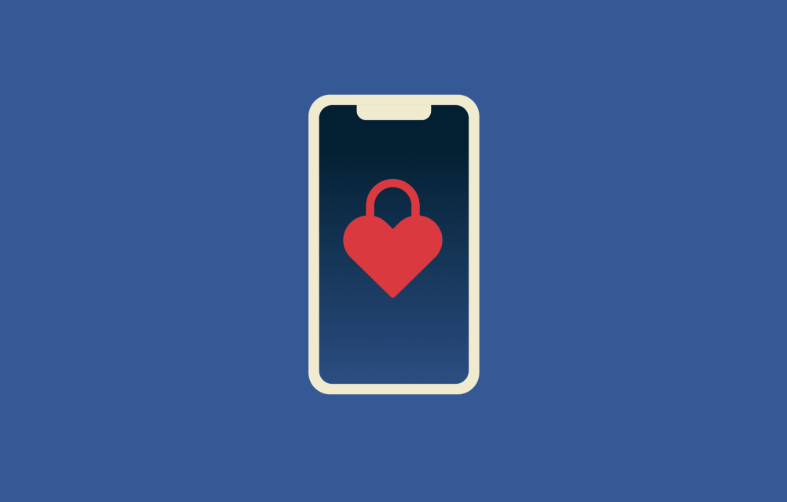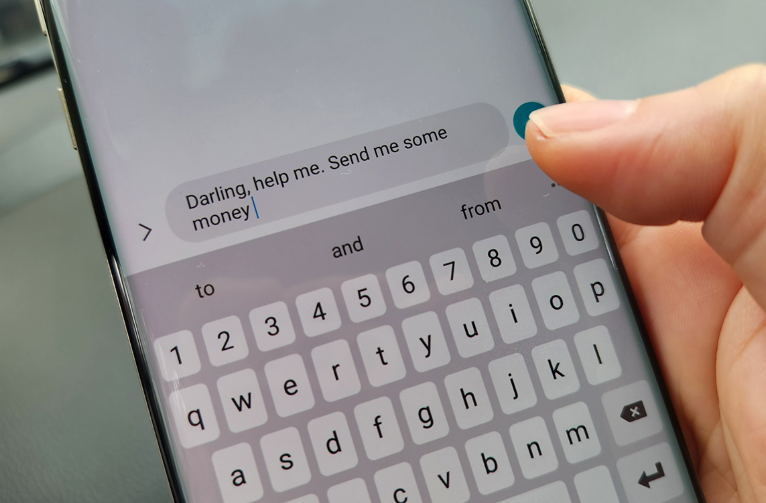In Austria, an estimated 600,000 people use dating apps. But a quick “match” can hide dangers. Here you’ll find information about risks, data protection, and security.
Swipe left – an attractive person appears on the screen. The algorithm knows the user’s prey pattern. Another swipe left anyway. The next candidate is already waiting.
Dating apps work so easily
Most dating platforms operate according to this principle. In just a few seconds, you have flirting potential on your smartphone. Nowadays, there’s a suitable dating app for every sexual orientation and religious belief. A few examples:
- On Tinder , you can specify your sexual orientation. Getting to know someone is based on the familiar swipe principle. Tinder is part of the Match Group – a highly successful tech company that also owns the platforms OkCupid , Hinge , Pairs , and OurTime .
- Grindr and Romeo are among the most popular dating apps among gay men in Austria. Here, you can find like-minded people in your area, chat, and arrange meetings. When it launched in 2009, Grindr was the first dating app to include GPS data in its search results.
- Zoe and HER are the counterparts and are aimed at the female-oriented LGBTQ community.
- Muzz is aimed at all single Muslims. According to the company, there have already been “over 400,000 Muslim weddings and 300 new couples every day thanks to Muzz .”
- On Bumble , you can find not only new friends or people interested in a serious relationship, but also potential business partners. The app aims to be a safe and friendly place, which is why it has a strict code of conduct for its use.
These apps have made it very easy to find your next date in your area. While this may seem straightforward at first glance, it also carries risks.
How safe are dating apps?
When installing apps on a computer or smartphone, privacy settings are often accepted without thinking. Nevertheless, it’s advisable to take a closer look at the relevant options, especially with dating apps. Such portals share sensitive data with the community, such as private information and photos, which shouldn’t fall into the wrong hands. Before registering, you should therefore do some research online and read reviews to get an idea of the app’s reliability and security.
Tip
Helpful tips for the safe use of dating platforms can also be found at Saferinternet.at
Privacy on Tinder and Grindr
As a general rule, once you’ve registered and created your profile, take a look at your privacy settings. (In most apps, these are located under “Settings” or “Privacy.”) Tinder, for example, claims to be very transparent and secure, but all data usage checkboxes are checked by default. So, if you want to use Tinder , go to the settings and select “Privacy Settings.” There are three features you should disable:
- Access Marketing
- Access to social networks
- Advertising access
However, the app’s privacy settings also list “absolutely necessary access” that cannot be turned off. These are required for the app to function, it says: Google Login for registration, Vonage for video calls with “matches”, Spotify for sharing favorite songs. Whether and to what extent these third parties use shared data for their own purposes is not clear. However, one particular tool really ensures security: By activating Noonlight , Tinder knows where and when a meeting is taking place. This mobile app, which can be used to call for help (“Panic Button”), can also be used outside of Tinder for personal protection.
Grindr ‘s privacy policy details what happens to the shared data (such as location data) and also states that this data is shared with third parties for the app’s functionality. Particularly striking: “For the avoidance of doubt,” as it states, HIV status, the last test date, and COVID-19 vaccination status are shared with all service providers that host data on Grindr ‘s behalf . Specifically, this is Amazon Web Services . The company Grindr LLC had to pay a million-dollar fine in 2021 for violations of the General Data Protection Regulation.
Beware, love scam!
A major insecurity with dating apps is that you never know who’s sitting on the other side of the screen. Names can be made up, photos stolen, and tragic stories fabricated to lure users into a trap and encourage them to take certain actions.
In order to avoid falling victim to fraud, the following applies:
- Only chat with people whose profiles have been verified. This feature is also a hallmark of reputable dating apps.
- Choose public and busy places for the first date.
- Never transfer money to strangers, even if you are asked to do so in chat.
- Use the app only on private Wi-Fi networks to avoid cyberattacks.
Notice
Further information can also be found in the article “ You should be aware of these scamming schemes ”.
Dating apps pose a serious risk of addiction
Keep in mind that dating apps use psychological tricks to keep you engaged with the app for as long as possible. For profit-oriented companies, a high dwell time is a selling point to advertisers. To this end, users are psychologically conditioned, similar to social networks: Likes, matches, and chat messages in the dating app trigger a dopamine release, thus activating the brain’s reward center. Once the hormone is depleted, users seek more and reopen the app to be further “rewarded.”
Another danger is that potential partners aren’t given a real chance because they assume they’ll find someone better after another swipe left. It’s therefore advisable to delete the app as soon as a serious relationship is in sight. This way, you won’t succumb to the temptation to swipe in the first place. And your dream of true love might still come true.

is an American author, blogger, and cybersecurity specialist based in Florida. He developed an interest in writing during his school years, which later led him to create content aimed at raising awareness about various forms of online scams, particularly in the world of online dating.
On his platform, Scam Service Report, Hall shares analytical articles and practical advice to help users recognize and avoid traps set by scammers on dating websites. He describes common scam scenarios in detail—such as quick declarations of love, urgent requests for money transfers, refusal to engage in video chats, and attempts to move conversations off the dating platform.



